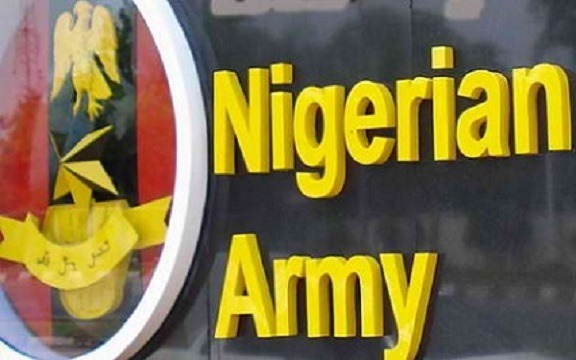The making of the federal Nigeria into a unitary state by the military stems from that institution’s belief that Nigeria was not ripe for true federalism. For proof, the military elites are always citing the crisis that rocked the nation immediately after independence, which culminated in the civil war. Though Nigeria was amalgamated by Lord Lugard in 1914, North and South Nigeria remained separately governed (South by legislative council and North by governor’s proclamation).
This unwholesome practice remained so until 1945 when Sir Arthur Richard became Governor General and brought his Richards Constitution, which set out the initial 3 Regions. This was the first indication that Nigeria was moving towards federalism. These Regions, namely, Eastern, Northern and Western Regions, however, did not become federal structures per se until the McPherson Constitution of 1951 and Littleton constitution of 1954.
These latter constitutions granted Regions quasi legislative and executive powers as should be in a federation. Fiscal Federalism was in place, as well as legislative assemblies, unicameral initially in the East and bicameral in the North and West. By independence, Nigeria was a full federal system, with power fully with the Regions; Regions had their own constitutions, police, civil service, and so on. This continued through the creation of Mid-Western Region from the Western Region, in 1964, up to 1966, January 15, when the military struck in Nigeria to truncate and replace federalism in Nigeria with a unitary system and almost irreparably damaged it.
We must give it to Arthur Richard as the governor general for being the first to see and accept that Nigeria can make progress as one country if it is structured as a federation. His 1946 Richardson Constitution granted internal autonomy to the existing three regions. And at independence the largely autonomous regions possessed the residual powers in the federation and functioned almost wonderfully according to their own strengths and comparative advantages.
Contrary to popular claims that regions were stronger, even before the First Republic collapsed, the federal government was asserting greater powers. In particular, it controlled the national economy and possessed emergency powers to intervene in any region where law and order had broken down, as it did in the Western Region in 1962. Compared to the powers of the states in the 1999 constitution though, the regions were also powerful; they had separate constitutions, foreign missions and independent revenue bases. All this changed under military rule.
For those who do not know, Federalism is a mode of political organization that unites separate states or other polities, in such a way as to allow each to maintain its own fundamental political distinctness whle being a part of the whole. Federal systems do this by requiring that basic policies be made and implemented through negotiation in some form, so that all the members can share in all decisions involved in nation building.
Federalism (Latin: foedus, covenant) is, therefore, a political philosophy in which nations or groups are bound together. The term federalism is also used to describe a system of the government in which sovereignty is constitutionally divided between a central governing authority and constituent political units (in Nigeria’s case, Regions and later, states ). Federalism is the system in which the power to govern is shared between the national and state governments, creating what is often called a federation. It was truly so in Nigeria before the military advent in governance in the country.
Nigeria’s federalism has one fundamental inherent contradiction: while others came together to form a nation, a nation was first formed in our case and regions/states then created as mere administrative convenience, not to recognize the naturally federating unites. In fact, efforts were made to destroy the nation’s federating units. For example, the South East (Igbos), South West (Yorubas), South South (Ijaw, et al),North West (Hausa bakwe), North East (Banza Bakwe), Middle Belt ( Tiv, Idoma, et al), etc. would have been left the way they were as ethnic nationalities. In other words, Nigeria wouldn’t have had more than 6-8 federating units, and not 36 States we have today (no thanks to the military). This is a gross error of judgment for which the nation has suffered beyond description. Below is the chronicle of how the military destroyed Nigeria’s federalism:
THE AGUIYI-IRONSI REGIME
Then Chief of Army Staff, Major-General Johnson Thomas Umunnakwe Aguiyi-Ironsi, an Igbo, 42 years old, and against all advice, promulgated Decree Number 34 of 1966, which abrogated the federal system of government and substituted it with a unitary system; he argued that the military could only govern in this way.
On May 24, 1966, Ironsi suspended the subsisting 1963 Republican Constitution and replaced it with series of decrees, most notable being the Unification Decree, which proclaimed Nigeria a unitary state, changed her name from Federal Republic of Nigeria, to Republic of Nigeria, reversed fiscal federalism, unified the Civil Service, the Police and several other aspects of federalism were taken over by the central government. This led to widespread riots which left scores of people , especially Southeasterners in the north , dead. Ironsi was eventually overthrown (and killed) by Gowon and his cohorts, who took over ostensibly to restore federalism. But did they? Nigerian Federalism received perhaps heavier blow under Gowon.
THE YAKUBU GOWON REGIME
Though when Lieutenant Colonel (later General) Yakubu Gowon, a Christian from the Middle Belt, became the head of state after the coup, his first act was to reinstate the federal system, along with the four regions and their allotted functions, the most important aspect, which was fiscal federalism (resource control) was not returned to the Regions.
The biggest blow the Gowon regime dealt on Nigeria’s federalism was state creation. In anticipation of Eastern Nigeria secession, Gowon moved quickly to weaken the support base of the region by decreeing the creation of twelve new states to replace the four regions.
THE MURTALA/OBASANJO GOVERNMENT
Murtala Mohammed, a Hausa from the north (Kano State), ruled for only seven months. Within that short period, he also weakened Nigerian federalism further when he set up a panel headed by Justice Ayo Irikefe to advise on the creation of more states, which led to the creation of seven additional states in 1976. More States only led to further atomization of the Nigerian nation’s federating states, thus making then too weak to stand as federal structures.
Murtala did not only retain military unitarism, he also reduced the states further by removing state governors from membership in the Supreme Military Council (the central law making body for the whole country) and created a new body in which they were included at the center, the National Council of States. Since this body was chaired by the head of state and subordinate to the Supreme Military Council, its creation underscored the subordinate position of the state governments. The only positive aspect on federalism of the Obasanjo regime after Murtala, was the creation of Local Government Areas as a tier of government.
THE BUHARI REGIME
On December 31, 1983, Major General Muhammadu Buhari sacked the democratically elected Government in Nigeria led by Shehu Shagari and replaced it with himself as the head of State. A Hausa/Fulani northerner from Katsina State, Buhari, in policies and actions, was as unitary as those before and after him.
THE IB BABANGIDA GOVERNMENT
General Ibrahim Babangida, of Gwari origins and a Middle Belt Muslim, was Nigeria’s sixth military ruler and, as of 1990, the most powerful. Compared with Buhari, Babangida was a somewhat more methodical ruler, and his style was different. Whereas Buhari was stern and resolute, Babangida was deft and tactical.
Anti-federalism actions of Babangida were many. For the first time, a military leader was called president, presumably to emphasize the executive power he wielded. Babangida also introduced far-reaching changes in the civil service, the police, the armed and security forces, and the political system. In 1987, some Muslims began pressing for the extension of sharia law from state courts in the north to the federal courts and some had also in the Second Republic, demanded the Islamization of the country. IBB largely acquiesced to such sectional demands and in 1986, Nigeria became a member of the Organization of the Islamic Conference (OIC), an international association of Islamic states. This action was very anti-federalism.
THE ABACHA REGIME
The Sani Abacha Regime was essentially an accentuation of all military governments before it. The regime weakened the states further, through state creation and other fiscal measures. It also appropriated more resources to the center.
GENERAL ABDULSALAMI AND THE 1999 CONSTITUTION
General Abdulsalami Abubukar bequeathed Nigerians a “unitary federalism”, not “true federalism” .He gave the nation the unitary 1999 Constitution also.
The Federal Military Governments expanded their control over the economy to the extent that in 1999 the states depended on it for up to 90 percent. The federal government also took over such matters as education, which formerly belonged to the states. Electricity generation and distribution are also now federal responsibility, ensuring almost constant darkness in the vast country.
Given that state governors were appointed on military assignment by the president, the states had little autonomy, except in deciding how to implement policies formulated by the federal government. Attempts by state governments to reassert their autonomy during the Second Republic were aborted by the return of military rule. The allocation of federal revenues was a problematic aspect of fiscal federalism because the states were unequally endowed and were virtually dependent on allocations from the federal government. Several revenue allocation commissions were set up, among them the National Revenue Mobilization, Allocation, and Fiscal Commission established during the 1980s. The major problem arose from disagreements over the criteria that should be used in allocations–derivation, population, need, equality, or minimum government responsibility.
If any nation typified political scientist Richard Sklar’s characterization of the African continent as a “workshop of democracy,” it would certainly be Nigeria. What Nigeria practices is not federalism, because it is more unitary than federal. The country needs to look at other federal structures in the world and adopt a model.
Whatever be the case, Nigeria must reorganize its federal system and salvage it from the bastardizations by the military. The first thing to do may be reverting to fiscal federalism and federal government rightsizing itself by shelving most of the irrelevant responsibilities it has imposed on itself, such as meddling in agriculture, education, health and so on. Greater resources and responsibilities must return to the states, with a constitutional provision encouraging economic cooperation between states to reenact the Regions destroyed by the military.
Nigeria, as a federal system, needs to pay special attention to revenue generation, not allocation. A normal or balanced federation must have sufficiency and abundance at the center and States respectively. Where merger resources are replaced at either the center or the state, and the center or state will wallow in abundance/sufficiency at the expense of the other, the result is a dangerously skewed federation and in Nigeria it exists in favour of only a section of the country, to the detriment of the nation at large. That is what has been referred to as ‘Feeding Bottle Federalism’ and rightly too.
- Law Mefor, Forensic Psychologist and Journalist, is National Coordinator, Transform Nigeria Movement (TNM) Abuja; email:lawmefor@gmail.com.



